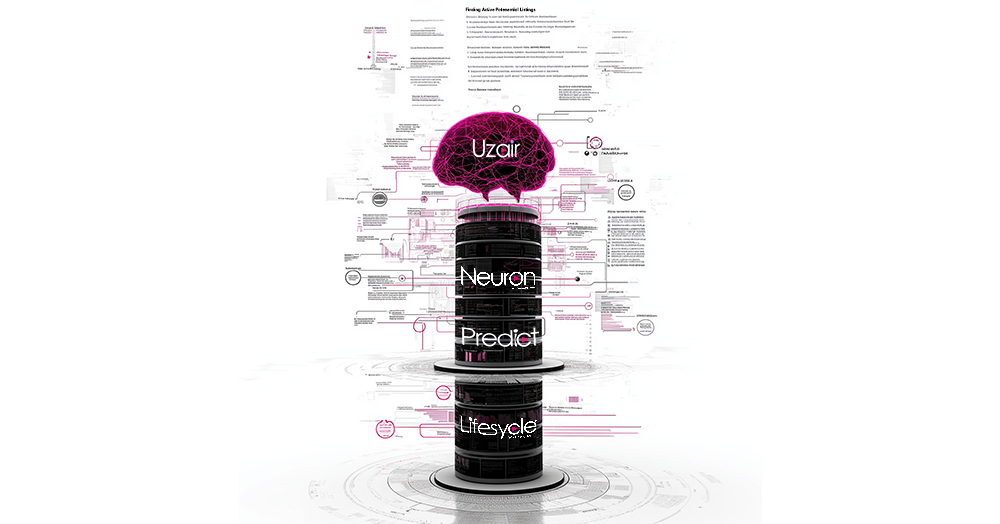The Great Divide of 2025: Why some businesses thrive while others falter in the new landscape.
The year 2025 marks a seismic shift in how businesses operate, with a growing divide between those clinging to traditional service models and those embracing data and intellectual property (IP). This transformation is especially evident in industries like estate agency. Here’s why adapting is no longer optional but essential.

As we navigate 2025, businesses face an existential choice: adapt to the evolving economic model or risk obsolescence. Across all sectors, a stark division is forming between service-based businesses—trading time for money—and those leveraging data and intellectual property to drive growth. The estate agency industry is no exception.
The Decline of Service-Based Models
Service businesses, where revenue depends directly on hours worked, are increasingly unsustainable. Rising costs of manual labour, stagnating fees, and an inability to scale without significantly increasing expenses are choking these companies. Estate agencies reliant on traditional methods—manual property matching, limited customer data use, and outdated CRMs—find themselves stretched thin, unable to keep pace with competitors offering faster, more efficient services.
The problem is systemic. Service models struggle to create lasting value or differentiation. In a crowded market, competition revolves around price, eroding margins and leaving businesses vulnerable to economic downturns. Estate agents who fail to invest in scalable solutions are now finding their revenues plateauing while expenses continue to rise.
The Ascent of Data and IP Businesses
In stark contrast, companies leveraging data and IP are thriving. These businesses invest in automation, big data, and AI-driven solutions to reduce reliance on manual labour and unlock powerful customer insights. For estate agencies, adopting platforms like Lifesycle transforms how they operate. Lifesycle integrates CRM, data analytics, and digital marketing into a seamless system, enabling agents to offer personalised, scalable services without adding significant overheads.
Here’s why data-driven businesses are pulling ahead:
1. Lower Operational Costs: Automation reduces reliance on human labour for repetitive tasks like lead qualification, appointment scheduling, and follow-ups.
2. Enhanced Customer Experience: Data allows businesses to understand customer needs deeply, delivering tailored services. For example, intelligent property matching tools can anticipate a buyer’s preferences based on online behaviour.
3. Scalability: Unlike service businesses, data and IP models scale without a corresponding increase in costs. Estate agents using predictive analytics can manage more clients with the same resources, growing revenue without proportional expenses.
4. Futureproofing: Data-driven businesses are more adaptable, able to pivot quickly with market demands. Their reliance on continuous improvement ensures they stay relevant in a fast-changing economy.
The Estate Agency Divide
The estate agency industry perfectly illustrates this divide. Agencies stuck in the old ways, reliant on traditional service models, are finding it increasingly difficult to compete. Meanwhile, those using modern solutions like Lifesycle and Neuron are thriving. By combining data insights, AI, and automation, these agencies enhance their customer experience while streamlining internal processes.
Take McDonald's and Netflix as examples from other industries. Both have used data to create unparalleled customer experiences, from personalising recommendations to optimising service flows. Estate agencies can apply similar principles to valuation tools, property matching, and customer communication.
Don’t let your estate agency be left behind. Discover how your business can thrive in the data-driven era by taking our Estate Agency Business Journey Profiler or book a consultation to future-proof your agency today.
Book a call
Unlock the transformative power of our AI Operating System for Estate Agents. Designed to replace an agents prospecting tools, CRM, marketing tools, compliance tools and even their website in order to future proof their business and increase profit.
First Name*
Last Name*
Email*
Phone*
Company*
Which best describes your estate agency?
Are you the final decision maker for technology and strategic investments in your company?
Affordability-We understand it is our job to show you the measurable ROI value Iceberg’s solutions can bring to your agency. The investment starts from £1,299 per month. If you did see the benefit of our platform, is this affordable?
Any other information
Please confirm that it is okay for us to contact you about this information as well as products and services. (You will always be given the right to unsubscribe at any point in the future)*
Latest news
Newboulds & Co double revenue per employee without hiring
How an independent estate agent in Shepperton, Surrey increased RPE from £66k to £133k and grew profits by 52% using Iceberg’s AI Operating System.
Read more
Getting Ahead in 2026: Safeguarding Your Estate Agency and Embracing AI for a Stronger Future
As we step into 2026, the landscape for estate agents continues to evolve at pace. This year, the focus isn't just on adapting, but on strategically getting ahead, safeguarding your business, and truly understanding the transformative power of artificial intelligence.
Read more
What Replaces CRM Software in Estate Agency?
CRM software has been part of estate agency for so long that most people no longer question why it exists. It is simply assumed to be necessary, unavoidable, and fixed. But the question agents are increasingly asking is no longer which CRM to use. It is what replaces CRM software in estate agency altogether?
Read more



